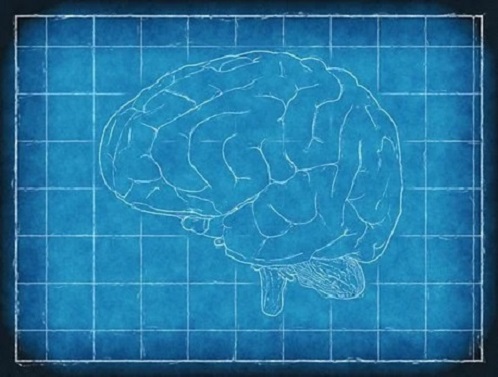Depression, as an illness, is one of the more well-known mental health conditions. Originally, counseling and medication were the traditional treatment options. In recent years, a new option therapy has emerged for the treatment of the more severe cases of depression. This new therapy is transcranial magnetic stimulation or TMS. As a treatment option for medication-resistant depression, it possesses many benefits over traditional treatment approaches.
Major Depressive Disorder or MDD:
Some people need to take a break, step back and take a fresh look at the problems in their life. Therapy sessions with a skilled counselor can present people with strategies and coping mechanisms. Yet, sometimes this kind of treatment is not enough. Even after following a prescribed antidepression medication regiment, people may still experience the effects of major depressive disorder or MDD. Otherwise more commonly known as severe or clinical depression.
People should not confuse temporary feelings of sadness for MDD. Individuals with major depressive disorder experience a disruption in their day-to-day activities. In fact, they may find it difficult to perform these activities or participate in hobbies they once enjoyed.
Beyond just feeling a little blue, MDD is a more profound and deeper level of depression. It is also a persistent feeling that does not seem to ever go away. These feelings that interfere with a people’s day-to-day activities, including their work and sleep.
In the United States, roughly 6 to 7 percent of the population receives professional treatment for MDD. Overtime, if left untreated, these mental health conditions can lead to more serious health problems, including suicide. In general, depressive-type symptoms need to be present for at least two weeks before a professional diagnosis can be made by a psychiatrist.
Transcranial Magnetic Stimulation or TMS:
Traditional treatments such as talk therapy and prescribed medications are still effective forms of therapy. However, TMS therapy provides an additional option for treating medication-resistant depression. Since the 1980s, Transcranial magnetic stimulation has been studied as an effective mental health treatment. By 2008, the Food & Drug Administration (FDA) officially approved TMS for the treatment of depression in adults.
TMS treatment is a non-invasive, non-systemic therapy that utilizes MRI strength magnetic pulses to stimulate areas of a patient’s brain. The area of the brain targeted is known to be hypoactive, or have reduced activity, in individuals with major depressive disorder.
Specifically, the research focused on the application of TMS therapy for the treating adults who have not experienced improvements in their depression through the use of anti-depression medication. The FDA approval of TMS treatments for medication-resistant depression also means that many health plans now provide insurance coverage for this therapy.
TMS therapy is safe, effective and creates less side effects when compared to traditional antidepressant medications. TMS does not produce the systemic side effects that are commonly associated with traditional MDD treatments.
Here are four benefits that people usually experience from Transcranial Magnetic Stimulation therapy.
- Now covered by most people’s insurance plans.
- Treatments do not require anesthesia and readily fit into a person’s day-to-day schedule.
- Least invasive treatment option for more severe depression.
- Therapy is non-addictive and has less side effects compared to antidepressant medications.
It should be noted that TMS treatments do have some potential side effects. However, when compared to the side effects of other specific depression (MDD) treatments such as selective serotonin reuptake inhibitors (SSRIs); the effects are minimal.
Side effects from Antidepressant Drugs:
– Migraines and/or headaches
– Weight gain
– Dry Mouth
– GI Distress
– Nausea
– Fatigue
– Insomnia
– Daytime Drowsiness
– Sexual Dysfunction
Side effects from Transcranial Magnetic Stimulation:
– Side effects occur in fewer than 5% of patients.
– Discomfort at/near the treatment site (scalp).
– Rare risk of seizure associated with the use of TMS treatments (0.01% per patient).
Antidepressant drugs have a place in psychiatry and are a useful tools in treating mental illness. However, TMS has also established itself as a valuable treatment option.
Emerald Psychiatry’s TMS treatments should not be used with patients who have non-removable conductive metal in or near their head. TMS Treatments are only available by prescription. People suffering from depression should contact a mental health professional in order to learn more about TMS Therapy and whether it is a good option for them. For information about this topic, contact the staff and Emerald Psychiatry & TMS Center.
About Emerald Psychiatry & TMS Center:
Good mental health and the successful treatment of behavioral health conditions are the primary goals of Emerald Psychiatry & TMS Center. Their experienced staff understand the needs and concerns of their patients and work with them to create a customizable approach that produces success. The center is located near Columbus, Ohio in the town of Dublin.
For more information about Emerald Psychiatry’s behavioral health services and treatment options, email or call them. Their center’s main office number is (614) 580-6917.
Follow and like them on Facebook, Instagram and Twitter:
#EmeraldPsychiatry #ColumbusTMS #DublinTMS #WestervilleTMS #OhioPsychiarty #TMS #MentalHealth #DepressionTreatments
Contributor: ABCS RCM


Recent Comments